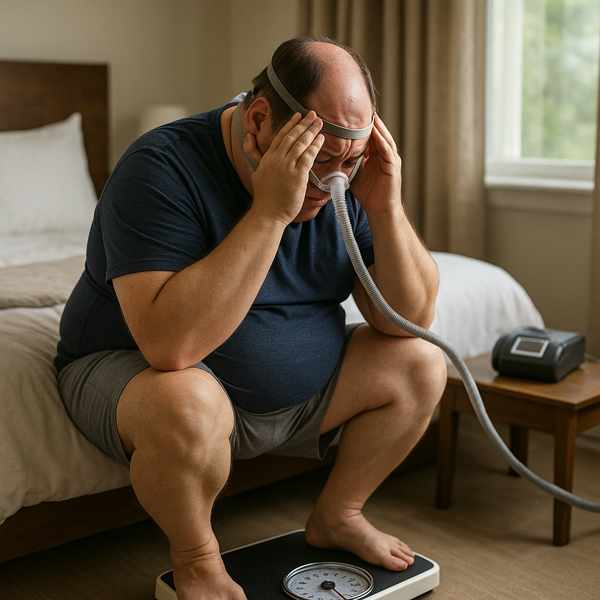Will Weight Loss Eliminate Sleep Apnea Symptoms?
Will Weight Loss Eliminate Sleep Apnea Symptoms?
Blog Article

Sleep apnea is a potentially dangerous sleep disorder that affects breathing during rest.
Let’s explore how shedding pounds can affect this sleep condition.
What Is Sleep Apnea?
Sleep apnea occurs when breathing repeatedly stops and starts during sleep.
Common symptoms include:
- Often reported by sleep partners
- Choking or gasping during sleep
- Difficulty staying alert during the day
- Signs of disrupted oxygen flow
The Link Between Weight and Sleep Apnea
Fat deposits in the throat may narrow the airway, making it more likely to collapse.
Key risk factors include:
- High BMI (Body Mass Index)
- Fat around the neck and jawline
- Can contribute to airway collapse
Can Weight Loss Cure Sleep Apnea?
Especially in individuals with mild to moderate OSA, lifestyle changes can be very effective.
Possible benefits of weight loss:
- Improved nighttime breathing
- here Reduced risk of waking up during sleep
- Less need for CPAP machines or surgery
- Improved sleep quality and energy
However, weight loss may not cure sleep apnea in all cases — especially if anatomical issues or severe OSA are present.
What Results Can You Expect?
Even modest weight loss can have a big impact.
Tips:
- Start with small, achievable goals
- Sustainable changes make a difference
- Notice snoring, energy, and daytime fatigue improvements
Natural Weight Loss Tips for Better Sleep
Effective strategies:
- Limit sugar and processed carbs
- Boosts metabolism and burns fat
- Helps open up the airway naturally
- These relax throat muscles and worsen apnea
Working with a nutritionist or sleep specialist can provide more personalized support.
When Weight Loss Isn't Enough
If symptoms continue, talk to your doctor about other options such as:
- Keeps airways open at night
- Custom-fitted mouthpieces to reposition jaw and tongue
- To remove excess tissue or reposition structures
Conclusion
For those whose apnea is linked to weight, shedding pounds is often a powerful, non-invasive solution.
Talk to your healthcare provider, make informed decisions, and take proactive steps toward better health and rest. Report this page